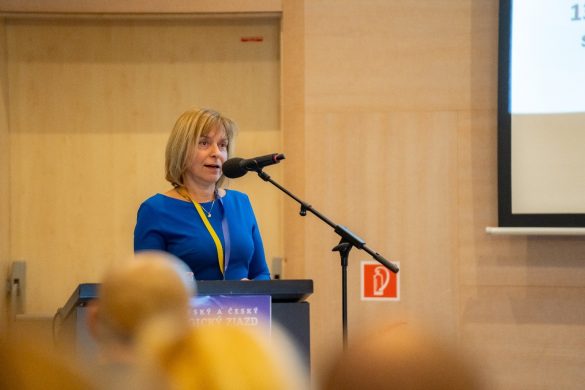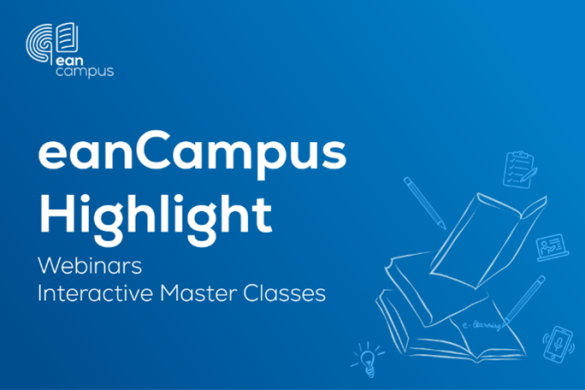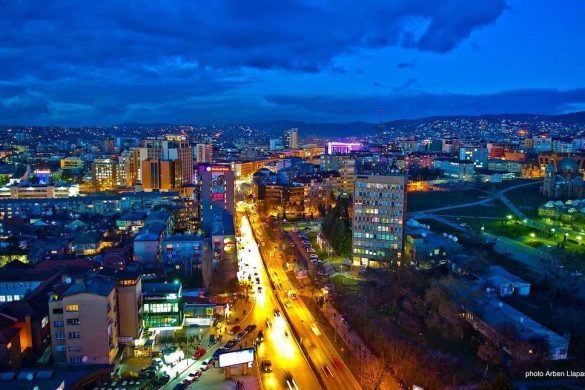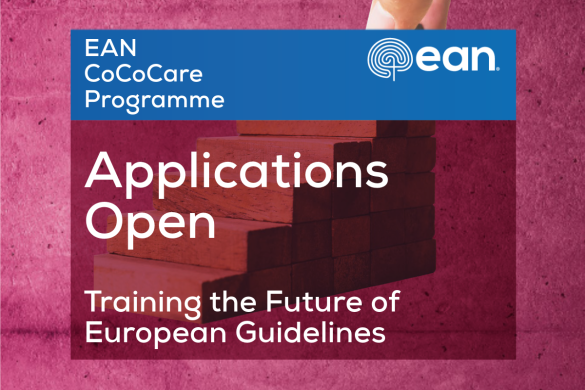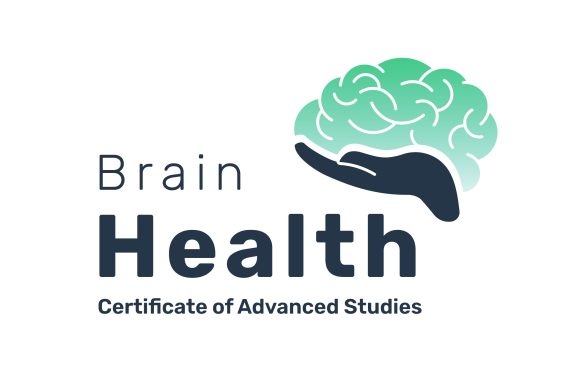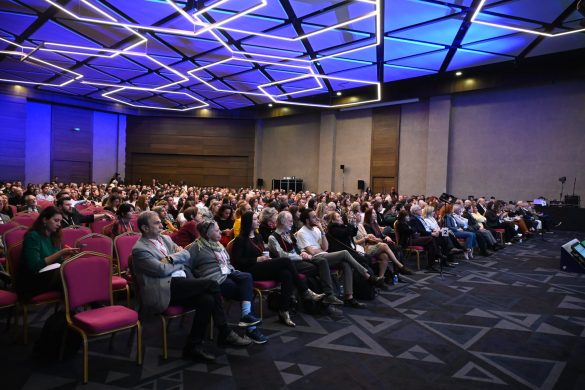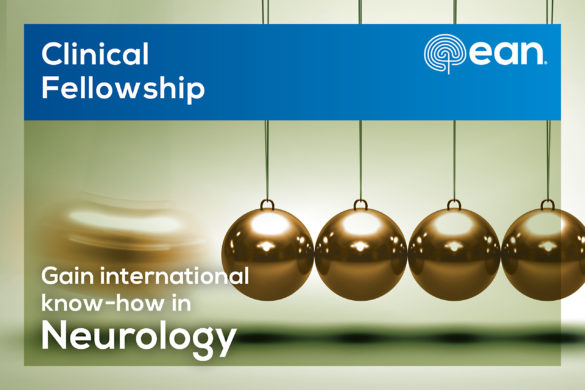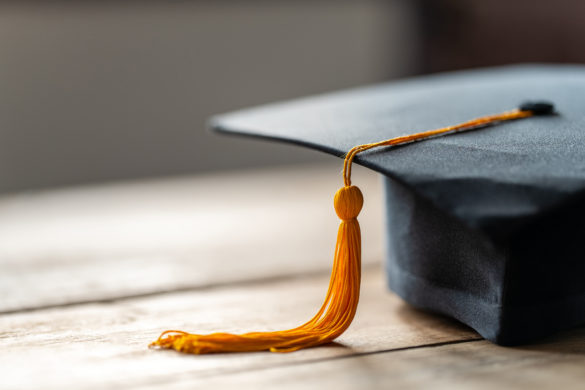Francesco Germano, Genova, Italy
Term of Fellowship: 9 January – 2 April 2023
Hosting department: University Medical Center Utrecht, the Netherlands
Supervisor: Dr Stephan Goedee
My clinical fellowship was mostly focused on improving my expertise in neurophysiology and in learning the technique of nerve ultrasound. I started on 9 January and my experience lasted for more than 12 weeks.
During these weeks I focused on:
- Nerve ultrasound in neuromuscular disorders
- EMG
- Intraoperative neurophysiological monitoring
Almost everything was well organised, and everybody was quite professional with me. My tutor, Dr Stephan Goedee, was always open and helpful. In these weeks I properly learned how to perform nerve ultrasound and I became autonomous in performing the examinations. I already had a proper background in EMG, but I also improved my knowledge in nerve conduction studies.
I also enjoyed the protocols that they use in intraoperative neurophysiological monitoring and the nice environment and relationship between neurophysiologists and surgeons (not so obvious).
I came to the Netherlands to learn the nerve ultrasound and not for a vacation, so I consider myself perfectly satisfied, but I have to say that there was a little difficulty in bonding with colleagues and in general with Dutch people; this was a negative part of my experience.
The Netherlands is also a quite expensive country with a huge problem: lack of apartments for rent. I asked for a place in university apartments four months before my arrival, but there was no place for me. Thanks to the grant from the EAN I was able to afford a room in a shared apartment, but it was extremely difficult to find one.
In conclusion I really want to thank the EAN for this opportunity; I firmly believe in the values of integration and cooperation that are part of the DNA of the EAN and I will always be grateful to the European Academy of Neurology.
As a future neurologist and passionate neurophysiologist, I will certainly share my passion and my love for neurophysiology and I will use in my country what I learned in the Netherlands.
Heba Deraz, Cairo, Egypt
Term of the Fellowship: 1 May – 28 July 2023
Hosting department: St. George’s University Hospital London
Supervisor: Prof. Francesca Morgante
Thank you for offering me this great opportunity. It was a huge opportunity for me to spend my clinical fellowship at the Movement Disorders Centre at St. George’s University Hospital in London, United Kingdom, under the supervision of Prof. Francesca Morgante.
My activity, achieved knowledge, and comments about my visit:
I attended the Movement Disorders Clinic twice per week, during which, I was trained on the diagnosis and management of common and rare movement disorders, including Parkinson’s disease, different types of dystonia, tremor, chorea, atypical Parkinsonism, functional movement disorders, restless leg syndrome, ataxia, tics, and rare and unusual movement disorders such as painful legs moving toes syndrome, and rare genetic movement disorders. I was trained to use different rating and assessment scales in movement disorders, particularly in Parkinson’s disease and dystonia.
I attended the weekly Botulinum Toxin Injection Clinic, during which, I was trained to use Botulinum toxin injections to treat different types of dystonia and tremor. In addition, I learned more about the treatment of unusual dystonias with botulinum toxin injections. These included musician dystonia, complex dystonias with childhood onset, and rare task specific tremor syndromes. I was also trained to inject botulinum toxin under EMG-guidance for more complicated cases, including musician dystonia and some adult-onset focal dystonia, especially in cervical dystonia.
I attended the weekly DBS (Deep Brain Stimulation) Clinic, which offers postoperative management, and a DBS Screening Clinic for preoperative assessment. I was trained by Prof. Morgante on DBS programming with novel devices and stimulation paradigms in patients with advanced Parkinson’s disease, dystonia, and tremor. I was also trained on how to select patients for DBS, which device and brain target to choose, and on post-surgical management and programming. In addition, I learned about extensive DBS screening, which allowed me to know more about the levodopa challenge test, and the extensive clinical and neuropsychological assessments. I attended monthly multidisciplinary team discussions with other neurologists, neurosurgeons, neuropsychologists, and specialised nurses. This helped me to learn the importance of building up multidisciplinary expertise.
I attended the Apomorphine Clinic twice, where I learned more about the apomorphine infusion as an advanced therapy for Parkinson’s disease. I was trained on the pre-infusion assessment to select patients and to screen for side effects.
I attended weekly grand rounds, which helped me to improve my knowledge of movement disorders and general neurology. The grand round involved a neuroradiology meeting and dedicated lectures and updates in neurology.
I also attended ward rounds with Prof. Morgante to manage and follow-up admitted patients with movement disorders under her supervision.
In addition, I had the opportunity to be involved in a clinical research project about ‘Sexual Dysfunction in people with Parkinson’s disease’. During this work, I learned how to acquire data, do statistical analysis, and work with data management. I also presented this research project in the grand round of the Neurology Department at St. George’s Hospital, which was a great opportunity for me. We also wrote the paper which is on its way to publication. I am also working at the moment with Prof. Morgante to write a case report about a case with mixed movement disorders after Bartonella infection. I learned about the rigorous methodology of clinical trials, as I had the opportunity to observe the process of a clinical trial which is being led by Prof. Morgante.
Moreover, the work environment was very supportive and motivating. Prof. Francesca Morgante, as well as the rest of the team, were all very kind, supportive, and competent; and I strongly believe that our collaboration will extend beyond that period of time.
Overall, I strongly believe that I gained a lot of experience, deepened my knowledge, and developed specialised skills during my three-month stay at the Movement Disorders Centre at St. George’s Hospital. Spending this period working with Prof. Morgante represented a great and unique experience for me to improve my work and have access to the state-of-the-art clinical and research facilities. I am looking forward to transferring these skills back to my home country, and to continue the collaborative work with Prof. Morgante and the whole team.
Jesus Tiago, Vila Franca de Xira, Portugal
Term of the Fellowship: 1 April – 30 June 2023
Hosting department: Ospedale Bellaria, Bologna, Italy
Supervisor: Prof. Federica Provini
I applied for the EAN Clinical Fellowship with the desire to improve my knowledge on sleep medicine.
My interest in this area started after the neurophysiological rotation, one of the mandatory
rotations of my residency. During that period, I had the opportunity to analyse sleep exams and to
observe patients with sleep disturbances. After finishing the rotation, I felt that the contact with
sleep medicine was too short so I started investigating where I could deepen my experience. I based
this research on the EAN’s list of approved host departments for clinical fellowships. One of the
featured host departments was in Bologna, which later I discovered is a city with a big tradition of
studying sleep disturbances. In fact, it was the first place in the world to have a centre dedicated
to sleep medicine and leads in the number of publications in Europe. After I made my decision, I applied for the fellowship at Centro per lo studio del sonno dell’Istituto delle Scienze Neurologiche di Bologna at Bellaria Hospital.
During my stay I was integrated into the team of my supervisor, Prof. Federica Provini. Her sleep
laboratory does all kinds of sleep studies, namely video-polysomnographies (PSGs) at the hospital
(level I), ambulatory video-PSG, complete PSGs (level II), cardiorespiratory PSGs (level III), multiple
latency sleep tests (MLST), maintenance of wakefulness tests (MWT), actigraphies and C-Pap
monitorisation and titration. Every week there were around 3 to 5 V-PSGs both at the hospital and
ambulatory.
I had the opportunity to learn how to stage sleep phases, analyse recordings and compile reports
for every type of exam. The great number of exams performed and the chance to analyse and discuss
each one with an expert was one of the most positive aspects of this fellowship. Every member of the
team, doctors and technicians, were always open to explain and teach. Most patients who
underwent sleep studies were referenced by the outpatient clinic. However, rarer cases were
admitted to the neurology ward when other studies were needed.
Complementing the neurophysiological studies there was also the outpatient clinic where I had the
opportunity to contact with patients with sleep disturbances and observe the challenges they
present. It happened two times a week and was done by several different doctors, including
Prof. Provini herself. During these appointments, I learned some particularities of the
anamneses of these patients, the differential diagnosis of sleep disturbance, when and what exams
to ask for, the importance of sleep hygiene and how to recommend it, pharmacology therapy (when
needed) and how to deal with its side effects. Also, I learned how to manage patients on C-pap
treatment and how to coordinate efforts with other medical fields, like pneumology and
otorhinolaryngology.
Lastly, one very important part of the laboratory is dedicated to academic research. The fact the
team comprises PhD students but also other faculty students doing research, was a great motivation
to start doing research myself. In fact, during my fellowship we developed together a research
protocol that is currently in progress.
I would like to finish by thanking the EAN for this great opportunity. It was one of the best learning
experiences I’ve ever been through and the EAN’s support allowed me to take the most out of it.




